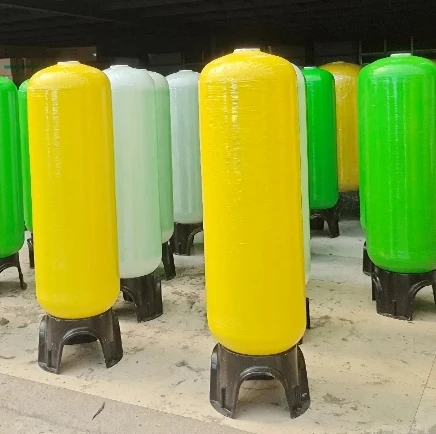loading...
- No. 9, Xingyuan South Street, Dongwaihuan Road, Zaoqiang County, Hengshui, Hebei, China
- admin@zjcomposites.com
- +86 15097380338
- Welcome to visit our website!
frp filter vessel
Understanding FRP Filter Vessels A Comprehensive Overview
Fiberglass Reinforced Plastic (FRP) filter vessels have emerged as a prominent solution in the field of water treatment and filtration. Combining the lightweight characteristics of fiberglass with the durability of plastic, FRP filter vessels offer numerous advantages that make them ideal for various industrial and municipal applications.
What is an FRP Filter Vessel?
An FRP filter vessel is a cylindrical container, typically used in water treatment systems to house filtration media. The vessel itself is constructed from a composite material that combines fiberglass fibers with a resin matrix. This combination provides enhanced strength while remaining significantly lighter than traditional materials like metal or concrete.
Advantages of FRP Filter Vessels
1. Corrosion Resistance One of the most significant benefits of FRP filter vessels is their resistance to corrosion. Unlike metal vessels that can rust over time, FRP vessels are impervious to a wide range of corrosive chemicals. This makes them especially useful in treating water with high acidity or salinity.
2. Lightweight Nature The lightweight characteristic of FRP allows for easier installation and transport. Workers can handle these vessels with less effort, reducing labor costs and minimizing workplace injuries. Furthermore, the lighter weight reduces the structural requirements for supports and foundations.
3. Longevity and Durability FRP vessels are designed to withstand harsh operating conditions, from extreme temperatures to high pressures. Their durability ensures a long service life, making them a cost-effective solution for water filtration over the long term.
4. Customization Options FRP filter vessels can be tailored to meet specific needs. Manufacturers can design vessels in various sizes and shapes, and even customize the types of resins used, enabling specific resistance to chemical exposure or thermal conditions.
frp filter vessel

5. Low Maintenance The inherent properties of FRP materials lead to fewer maintenance requirements compared to traditional materials. This characteristic reduces the overall cost of ownership, as facilities can expect less downtime and fewer repairs.
Applications of FRP Filter Vessels
FRP filter vessels are widely used across various sectors, including
- Water Treatment Plants They are integral to municipal and industrial water treatment facilities, where they serve to filter out impurities and particulates from water sources.
- Desalination Plants In regions where freshwater is scarce, FRP vessels play a crucial role in desalination processes, helping to filter saltwater before it undergoes conversion to potable water.
- Chemical Processing The chemical resistance of FRP makes it suitable for industries that handle aggressive solvents or acids.
- Wastewater Treatment These vessels are also implemented in the filtration stages of wastewater treatment, ensuring that contaminants are effectively removed before discharge or reuse.
Conclusion
In conclusion, FRP filter vessels represent a significant advancement in water filtration technology. Their unique properties afford them numerous advantages over traditional materials, making them a preferred choice for various applications. With their corrosion resistance, lightweight nature, durability, customization options, and low maintenance requirements, FRP filter vessels not only enhance operational efficiency but also contribute to sustainable water management practices. As industries continue to prioritize environmental responsibility and efficiency, the role of FRP filter vessels is expected to grow even further.
-
The Rise of FRP Profiles: Strong, Lightweight, and Built to LastNewsJul.14,2025
-
SMC Panel Tanks: A Modern Water Storage Solution for All EnvironmentsNewsJul.14,2025
-
GRP Grating: A Modern Solution for Safe and Durable Access SystemsNewsJul.14,2025
-
Galvanized Steel Water Tanks: Durable, Reliable, and Ready for UseNewsJul.14,2025
-
FRP Mini Mesh Grating: The Safer, Smarter Flooring SolutionNewsJul.14,2025
-
Exploring FRP Vessels: Durable Solutions for Modern Fluid HandlingNewsJul.14,2025
-
GRP Structures: The Future of Lightweight, High-Performance EngineeringNewsJun.20,2025
